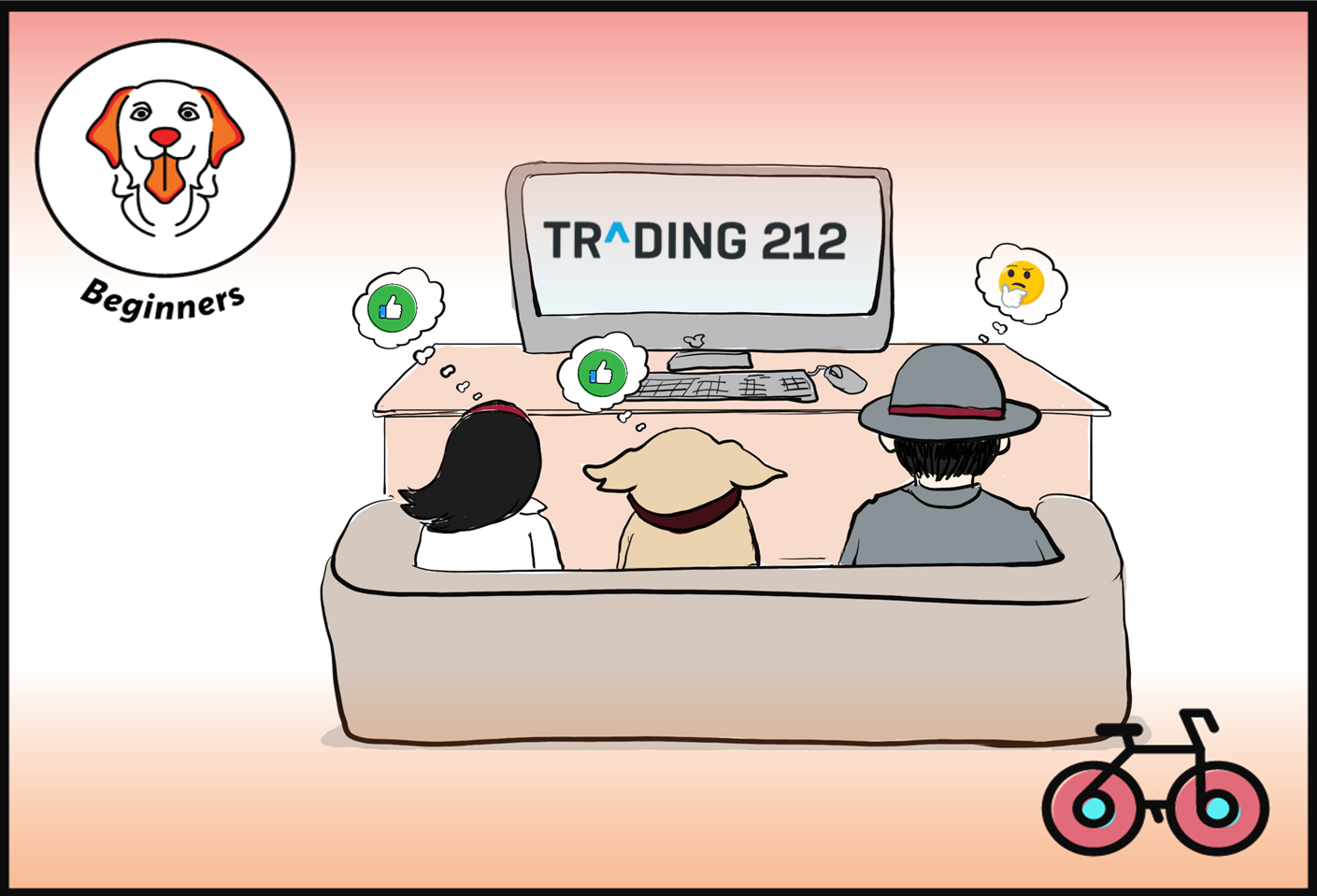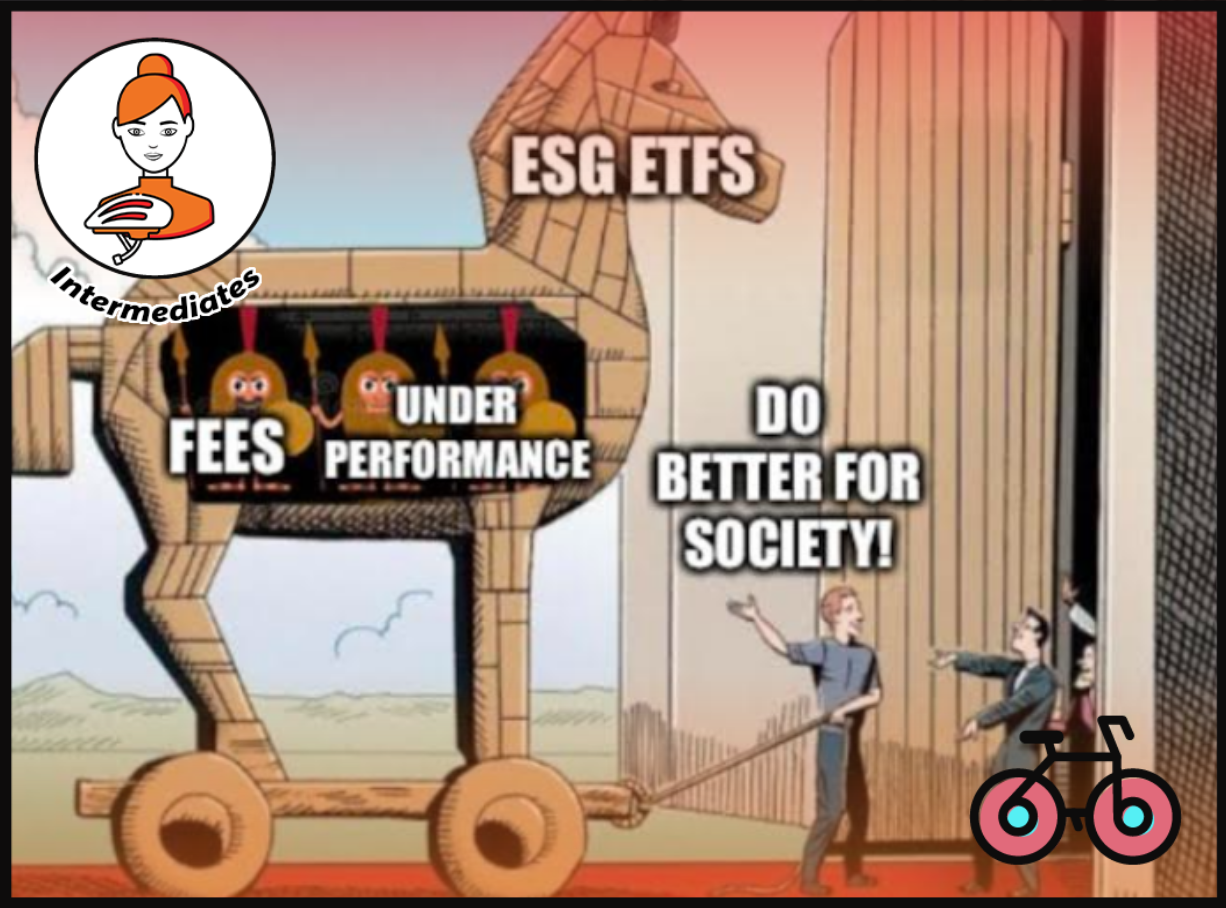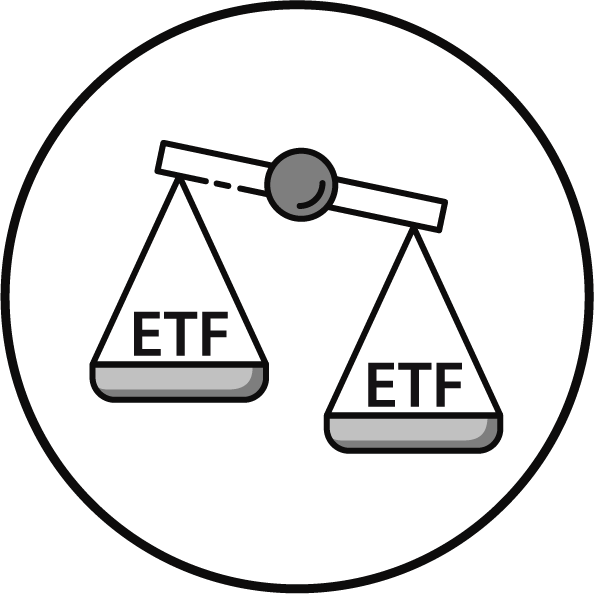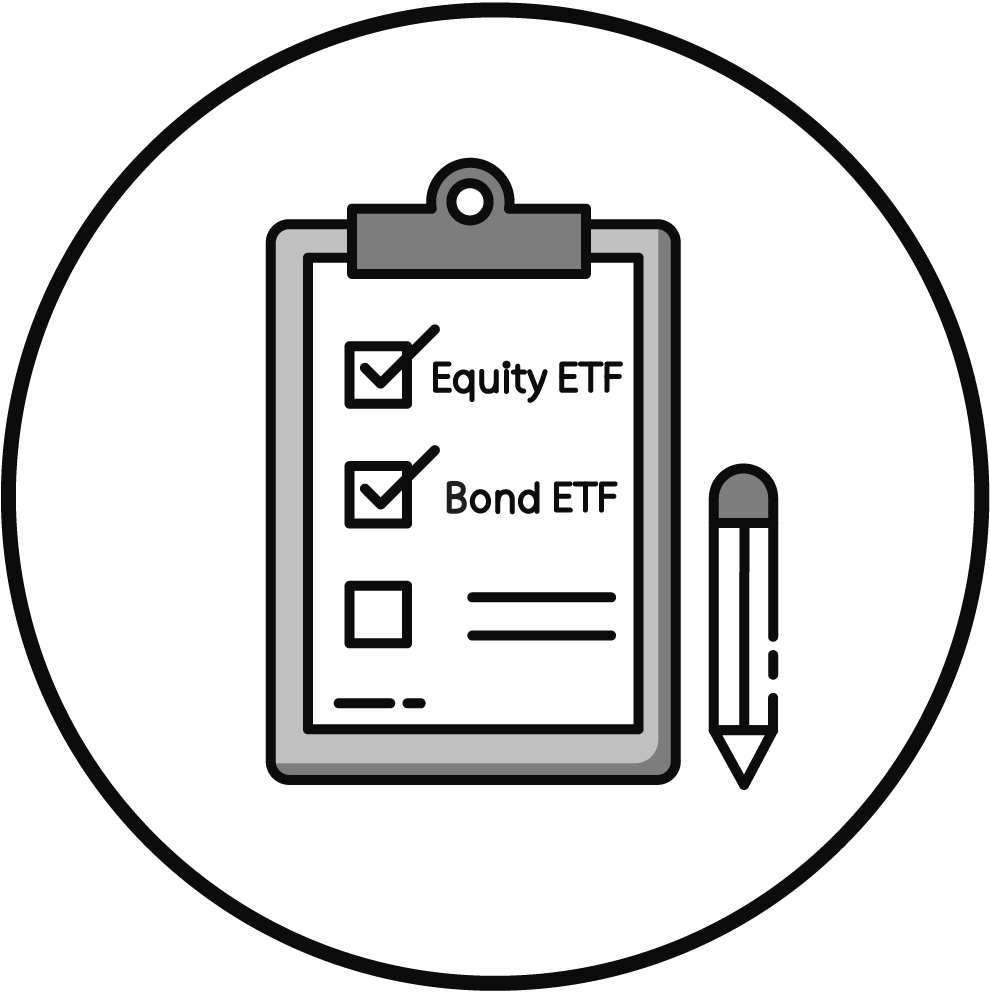Is Vanguard the Best ETF Provider?
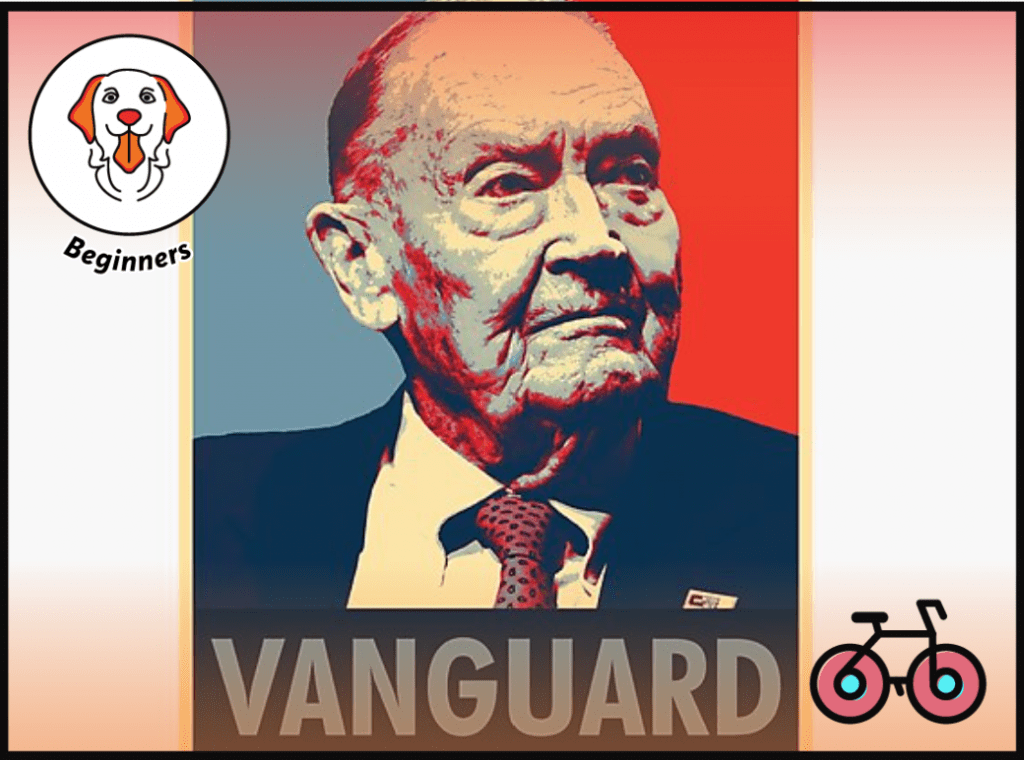
KEY TAKEAWAYS
- Larry and RC have collected 77 investing mistakes that investors commonly fall prey to. Each mistake and the evidence behind it is briefly presented in its own chapter, sometimes using personal stories, along with tips on how to avoid it.
- Even though chapters are relatively short, they are informationally very dense. An effective way for readers to digest the material is to focus on one mistake per day to let the material sink in.
- The mistakes can also be used as prompts for interesting finance-related discussions amongst families, friends, or investing groups.
- There are four parts in this book dealing with mistakes that fall into the same broad theme, which we briefly summarize below.
- This book does not put a particular focus on personal finance, but touches upon how to think about the opportunity cost of spending, how to think about withdrawal rates in retirement, and the importance of saving money early to let compounding work its magic.
Here is the full analysis
Warren buffett's advice to you
One Million Dollar Bet
In 2008, Warren Buffett, the Oracle of Omaha, threw down the gauntlet to his friends over at the elite hedge funds. The challenge?
He stated that, with all their genius and intellectual firepower, hedge fund returns could not beat the returns given by the humble S&P 500 Index Fund over a ten-year period. The consideration? A mere million dollars.
Buffett won, by a huge margin – the index fund had returned an annual 7.1% compared to a measly 2.2% by the hedge funds.
Invest Early, Take Risk (by investing through a diversified portfolio) and keep your costs low
Jack Bogle's 3 Simple Investing Principles
Clash of Investing Philosophies
At its very heart, this was much more than an idle (albeit expensive) bet among friends.
It was the clash of two very different investing philosophies that were at odds with each other.
Active investing, which involves buying, selling, and monitoring of one’s investments continuously, and passive investing, which minimizes buying and selling and instead, prioritizes holding of investments for a longer-term horizon.
Passive investing won.
If a statue is ever erected to honor the person who has done the most for American investors, the hands-down choice should be Jack Bogle
Warren Buffett
❤️🐶 Shop & Support - Celebrate our 4th anniversary! 4️⃣🎂
Spread the Golden Retriever Wisdom Across Europe & the UK 😎
Banker On Wheels is 4 years old! To celebrate our anniversary we have launched the official merchandise store – Shop.Bankeronwheels.com. You can now get your favourite Golden Retriever, or your factor tilt on a coffee mug or a T-Shirt while supporting our cause! All profits are reinvested into creating more educational content. Alternatively, you can also buy us a coffee. Thank you for all your support ❤️
Vanguard's origins
Saint Jack - The Founder
But what does all this have to do with Vanguard?
Because the father of passive investing, a titan named John Bogle, founded Vanguard as a means for individual investors like you and me, to invest in passive index funds and grow our money at these higher returns.
The idea was simple – allow small investors to put their tiny savings into a broad index fund, charging them minuscule fees and thus allowing them to make stellar returns. The man has, quite literally, put more dollars into all of our pockets.
Despite this, we know barely anything about him focusing our adoration and attention instead on investors with a flashier media presence – the Warren Buffets and the Mark Cubans.
Not only on Main Street.
Ask the average Goldman Sachs or BlackRock employee – they probably won’t have a clue (I tried).
It would also be an understatement to say that Bogle himself has not fought for his rightful place in the sun; it would be more accurate to say that he has foregone it by design.
While founders and CEOs of other much smaller money management funds, are billionaires many times over, Bogle, at the time of his death in 2019, had a net worth of only $80 million.
A large sum, but mind-bogglingly small for the sole founder of one of the largest financial institutions in the world.
Vanguard manages $7 trillion of assets as of October 2021, trailing only the $10 trillion managed by Blackrock and not so closely followed by Fidelity at $4.2 trillion.
Bogle has consciously passed on the profits to us investors instead. Buffett acknowledged this when he said:
“If a statue is ever erected to honor the person who has done the most for American investors, the hands-down choice should be Jack Bogle.”
Warren Buffett's Tribute to Jack
Bogleheads - The Cult
The ‘Bogleheads’, as followers of his investing philosopy call themselves, have grown from simply being birds of a feather to an organized bunch of investors, carrying forward his legacy of doing what is best for the small investor.
From writing books introducing laypersons to his ideology (all without being affiliated with Vanguard) to multiple online forums, a wikipedia or high quality podcasts, it seems that the Bogleheads have imbibed more than just passive investing from their eponymous guru – they seem to have imbibed his moral compass itself.
No conflict of interest
So, Vanguard allowed small investors to invest passively and make excellent returns at low costs – doesn’t sound unique in today’s time, does it?
Vanguard is not your usual run-of-the-mill mutual fund provider.
For one, the company itself is owned by its funds, which are in turn owned by their investors, a.k.a. you!
So, any profit generated by the funds, left over after covering administrative costs, actually gets passed on back to you, instead of going to mutual fund companies’ investors.
This applies also to European Investors.
Low costs
Speaking of administrative costs, Vanguard’s average expense ratio is 0.11% compared to the 0.62% industry average.
That means, all the more money left on the table for you, the investor.
Effectively, the main reason for lower returns for investors, that of conflict of interest between the fund managers and the investors with each vying for a higher share in the pie, is absent, since the fund managers are owned by the investors themselves.
The one person that made a difference for the average investor
Vanguard iN EUROPE
Continental Europe - A Work (still) in Progress
‘Well, take my Euros then already’.
Well, I have a tiny bit of bad news for you.
Unfortunately, and very ironically, given its original mission of opening up investing to small investors, you can’t open an account with Vanguard directly in Europe as a private investor (unless you happen to have €500,000 ready to invest).
You will have to go through your own broker, which may bring (if you don’t pay attention) plethora of fees and commissions.
So, you can still invest in Vanguard ETFs. Indirectly for the time being.
Choices include LifeStrategy ETFs (the easiest way to invest for Europeans).
Or, you may also explore setting up your own portfolio with a couple of Vanguard ETFs.
Prepackaged ETF Portfolios for UK Investors
UK investors have the advantage of having a direct option; The only requirements are:
- You must be at least 18 years of age
- You must be a resident of the UK
- You must invest a minimum of £100 per month/a lump sum of £500
To do so, you must open an account with Vanguard UK first. You can open a personal pension account (up to £40,000 per year), a Stocks and Shares ISA (up to £20,000 per year), a junior ISA for your kid (up to £9,000 per year), and a general account (with no investment limits). The expense ratio is 0.15%.
Once you have set up an account, you can choose which funds your money gets invested in.
You can opt for a ready-made portfolio or go for a more DIY strategy.
Vanguard offers the following ready-made portfolios for the more hands-off investors among us:
- A LifeStrategy Fund, which is a fancy word for a very simple type of fund – one that offers you a fixed mix of equities (the high risk-high return investments) and bonds (low risk-low return). You can go from 20% in equities (with the remaining 80% in bonds) all the way up to 100% in equities (and nothing in bonds).
- A Target Retirement Fund, which is similar to the LifeStrategy Fund, but with a twist – it automatically reduces your equity exposure (and increases your debt) as you get closer to your targeted retirement date.
If you want to get a bit more involved with your investments, you can also build your own basket of funds, personalizing it to your own life goals.
The huge plethora of funds available to you can be categorized into just two: mutual funds (active and index), and exchange-traded funds (called ETFs).
Mutual funds are simply what their names suggest – funds made up of various stocks/bonds – and which you can typically only buy or sell at the end of the trading day.
ETFs, on the other hand, are a peculiar variety of mutual funds. In the case of ETFs, the funds themselves are actively traded on the stock market, and therefore, can be bought and sold throughout the day, and not just at the end of the day.
Does that make ETFs better or worse? Well, for Europeans, the simple answer is ETFs they are better – easier to buy, and cheaper to hold (there are specific exceptions, but only in the UK).
CAN VANGUARD GO BUST?
In short, yes. It’s possible.
Are you likely to incur losses? Very unlikely.
Let us break that down into more manageable bits.
When you invest with Vanguard, your money is not buying you shares of Vanguard itself.
Your money is buying units in Vanguard Mutual Funds, and through them, individual equities/bonds.
For example, you might own shares of Apple or Microsoft. Vanguard going belly-up is not going to affect the fact that you own these shares.
Each mutual fund is also a separate entity, with its own assets and liabilities.
Though they are all managed by Vanguard, Funds are distinct legal entities owned by its investors and bankruptcy-remote from the manager.
Each mutual fund, irrespective of whether it is domiciled in the UK or Ireland or any other European country, is also regulated by the Undertakings for the Collective Investment in Transferable Securities (UCITS).
Do you have additional protections?
Well, for investors in the UK, the UK Financial Services Compensation Scheme (FSCS) has your back for the first £85,000. This means that the limit applies to your entire investment with Vanguard, irrespective of whether it is with one fund or ten. This applies to all Vanguard funds domiciled in the UK.
However, most European Vanguard ETFs are domiciled in Ireland and are, therefore, not directly covered by your local regulator.
Instead, they may be covered by the corresponding Irish Investor Compensation Scheme, which pays out 90% of your loss, up to a maximum of €20,000 per investor.
Do keep in mind that Vanguard is one of the biggest money managers in the world, with a stellar reputation, and is pretty equally placed with other investment managers (like BlackRock) when it comes to extreme situations like this.
As an educated investor, you must know both sides of the coin, but the scale is quite heavily tilted towards safety by investing with Vanguard.
From Bankeronwheels.com
Get Wise The Most Relevant Independent Weekly Insights For Individual Investors In Europe & the UK
Liked the quality of our guides? There is more. Every week we release new guides, tools and compile the best insights from all corners of the web related to investing, early retirement & lifestyle along with exclusive articles, and way more. Probably the best newsletter for Individual Investors in Europe and the UK. Try it. Feel free to unsubscribe at any time.
🎁 In the first email, you can download a FREE comprehensive 2-page checklist to construct & monitor your portfolio and clean up your personal finances.
CONCLUSION
The HMS Vanguard battleship after which the investment company has been christened belonged to the Arrogant-class of ships.
Ironically, its financial namesake has built its reputation on truly being on the side of the modest masses, building a cult-like following among the non-1%ers.
Given the lofty mission set by Bogle and how deeply it pervades every decision by the company, the reputation and the following are both more than well-deserved.
Vanguard is unique. Is it the best?
That’s a tough call. But it should be up there among the TOP 3 choices along with BlackRock for any long term investor.
REFERENCES
- Berhshire Hathaway, Shareholder Letter (2016)
- Berhshire Hathaway Investor Meeting (2017)
- The Things John Bogle Taught Us: Humility, Ethics and Simplicity, New York Times (2019)
- The Bogleheads’ Guide to Investing, Amazon (2014)
- Bogleheads on Investing Podcast
- Vanguard UK, Investment Account Types
- Vanguard Global, UCITS Documentation
Good Luck and Keep’em* Rolling!
(* Wheels & Dividends)

Banker’s Paradise: Two Easy Ways To Fool Investors

Slashing FX costs! In which currency should I buy ETFs?

Cash Is Not Enough: Why Hold Bond ETFs Despite Price Rollercoasters.

Weekend Reading – Global Shocks: How Do Stocks Perform?

Trading 212 Review: Pros & Cons

The Reason Why Sustainable Investing Will Underperform
HELP US
🙋 Wondering why finding honest Investing Guidance is so difficult? That’s because running an independent website like ours is very hard work. If You Found Value In Our Content And Wish To Support Our Mission To Help Others, Consider:
- 📞 setting up a coaching session
- ☕ Treating us to a coffee
- 🐶 Purchasing Our Official Merchandise
- ❤️ Exploring Other ways to support our growth, both financially and non-financially.
DISCLAIMER
All information found here, including any ideas, opinions, views, predictions expressed or implied herein, are for informational, entertainment or educational purposes only and do not constitute financial advice. Consider the appropriateness of the information having regard to your objectives, financial situation and needs, and seek professional advice where appropriate. Read our full terms and conditions.










